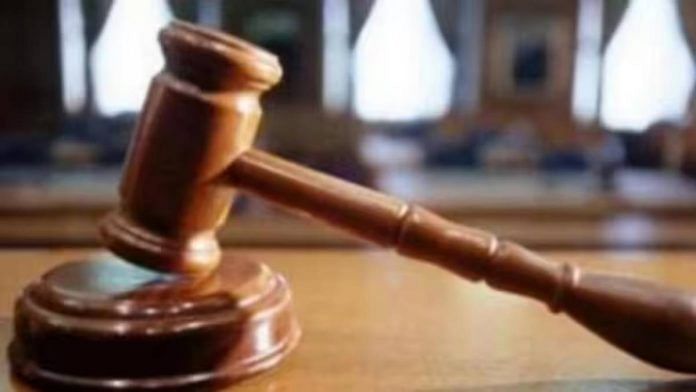New Delhi: The Delhi High Court Thursday practically stayed an order by a special Central Bureau of Investigation (CBI) court refusing to accept calls intercepted by the agency during a preliminary enquiry (PE) as evidence.
It said all parties, the CBI and the accused in this case, shall request the trial court not to schedule hearing before the high court hears the matter.
The case relates to an Indian Revenue Service (IRS) officer and several others who are accused of helping a businessman evade taxation. In his order on 15 May, CBI special judge Ashwani Kumar Sarpal had held that only evidence gathered after the registration of the FIR would be admissible during the trial.
The high court has sought response from all parties in the case after the CBI challenged Judge Sarpal’s order. A detailed hearing on the order will take place on 8 November.
If the course adopted by Sarpal stands legal scrutiny in higher courts, it could lead to the collapse of countless CBI cases across the country.
In a 2013 judgment (Lalita Kumari vs Government of Uttar Pradesh and Others), the Supreme Court had held that a PE is required to ascertain if a cognizable offence is made out in certain cases, such as corruption, matrimonial or family disputes and medical negligence.
Under the Indian Telegraph Act, communications can be intercepted to prevent the commission of any cognizable offence. In case of a central agency, the Union home secretary, and in the case of a state law enforcement agency, the principal secretary, home, can pass an order to lawfully intercept any communication.
However, the official has to send the interception order to the designated review committee within seven working days, and this panel can either confirm or set aside the order. If the order is set aside, the law enforcement agency concerned is required to destroy all calls it had recorded.
A former CBI officer told ThePrint that the admissibility of evidence gathered during the PE stage was a grey area that could be resolved in the new Criminal Procedure Code. The government has tabled the Bharatiya Nagarik Suraksha Sanhita Bill, which will replace the Criminal Procedure Code, in Parliament and it is currently being examined by a standing committee.
At most, the agency can use information gathered from intercepted calls for the purpose of registering the FIR and not any further, the officer added.
ThePrint tried reaching the CBI spokesperson via telephone calls. This report will be updated once a response is received.
Also read: Husband not paying maintenance despite court order? HC says civil suit can be filed for arrears
What is the case
The CBI lodged an FIR on 15 April 2015 against IRS officer M. Logapathi and a few others on the charges of accepting bribes to help a businessman in a case of alleged tax evasion. Following completion of the investigation, the agency filed its first chargesheet in the case in September 2015 and a supplementary chargesheet in August 2016.
During the trial, it emerged that the agency was relying on 181 intercepted calls as evidence against the accused. The accused sought the call details from the CBI to defend himself. During the arguments, it came to light that all the calls the agency was relying upon as evidence were intercepted during the PE period between 18 March and 15 April 2015. For intercepting calls, the agency said it had taken permission from the Union Home Secretary on 16 and 25 March, 2015 and again on 1 and 15 April, 2015.
In his order, Judge Sarpal said it was clear that all 181 calls were from a period prior to the registration of the FIR.
The judge said that since the calls were inadmissible as evidence, there was no need to provide the complete list of to-and-fro calls from intercepted numbers to the accused.
The judge further raised question on the credibility of intercepted calls by noting that the CBI hadn’t produced the review committee’s order confirming the home secretary’s order, and therefore, an adverse inference can be drawn that the order was not confirmed.
(Edited by Smriti Sinha)



